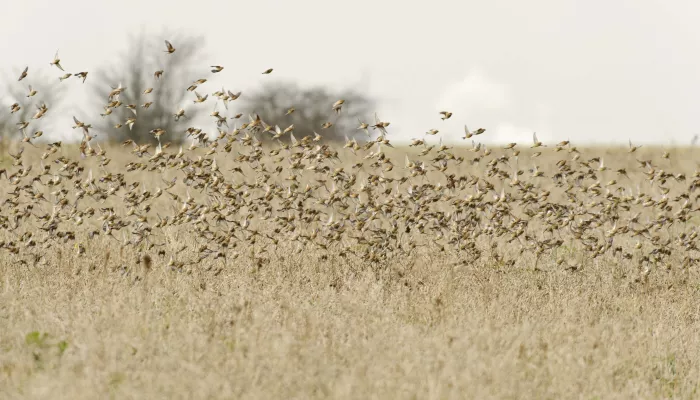| Statistics | |
|---|---|
| Length: | 14cm |
| Wingspan: | 24cm |
| Weight: | 19g |
| Average Lifespan: | 2 years |
The linnet can be seen on farmland and heathland across the UK. But, like so many other farmland birds, linnets are declining rapidly, mainly due to agricultural intensification.
About
A common, small finch of heathland, scrub and farmland, the linnet feeds on seeds and is present in the UK all year-round. In winter, they may form large flocks with other seedeaters, roaming the countryside and feeding on stubbles, saltmarshes and wasteland. Linnets build neat, bowl-shaped nests, often in gorse bushes or in hedgerows. They were once popular cage birds due to their melodious song.
How to identify
Linnet males have brown backs, grey heads, and pink foreheads and chests. Females are paler, streaky and lack the pink patches.
Did you know?
Linnets are named after their favourite food: seeds. Their common name comes from linseed, which is the seed of flax, while their scientific name, L. cannabina, refers to hemp.

